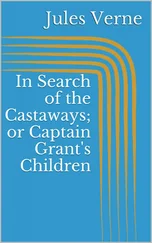Jules Verne - Round the World in Eighty Days
Здесь есть возможность читать онлайн «Jules Verne - Round the World in Eighty Days» — ознакомительный отрывок электронной книги совершенно бесплатно, а после прочтения отрывка купить полную версию. В некоторых случаях можно слушать аудио, скачать через торрент в формате fb2 и присутствует краткое содержание. Жанр: Прочие приключения, foreign_prose, на английском языке. Описание произведения, (предисловие) а так же отзывы посетителей доступны на портале библиотеки ЛибКат.
- Название:Round the World in Eighty Days
- Автор:
- Жанр:
- Год:неизвестен
- ISBN:нет данных
- Рейтинг книги:5 / 5. Голосов: 1
-
Избранное:Добавить в избранное
- Отзывы:
-
Ваша оценка:
- 100
- 1
- 2
- 3
- 4
- 5
Round the World in Eighty Days: краткое содержание, описание и аннотация
Предлагаем к чтению аннотацию, описание, краткое содержание или предисловие (зависит от того, что написал сам автор книги «Round the World in Eighty Days»). Если вы не нашли необходимую информацию о книге — напишите в комментариях, мы постараемся отыскать её.
Round the World in Eighty Days — читать онлайн ознакомительный отрывок
Ниже представлен текст книги, разбитый по страницам. Система сохранения места последней прочитанной страницы, позволяет с удобством читать онлайн бесплатно книгу «Round the World in Eighty Days», без необходимости каждый раз заново искать на чём Вы остановились. Поставьте закладку, и сможете в любой момент перейти на страницу, на которой закончили чтение.
Интервал:
Закладка:
"Yes, sir."
"Very well. What o'clock do you make it?"
"Twenty-two minutes past eleven," replied the valet, as he consulted an enormous silver watch.
"You are too slow," said Mr. Fogg.
"Excuse me, sir, that is impossible!"
"You are four minutes too slow. Never mind, it is enough to note the error. Now from this moment, twenty-nine minutes past eleven o'clock in the forenoon upon this 2nd of October, 1872, you are in my service!"
As he spoke, Phileas Fogg rose from his chair, took up his hat, put it on his head as an automaton might have done, and left the room without another word.
Passe-partout heard the street-door shut; it was his new master who had gone out. Shortly afterwards he heard it shut again – that was his predecessor, James Forster, departing in his turn.
Passe-partout was then left alone in the house in Saville Row.
CHAPTER II
Passe-partout is convinced that he has attained the object of his ambition.
"Faith," muttered Passe-partout, who for the moment felt rather in a flutter; "faith, I have seen creatures at Madame Tussaud's quite as lively as my new master."
Madame Tussaud's "creatures" are all of wax, and only want the power of speech.
During the short period that Passe-partout had been in Mr. Fogg's presence, he had carefully scrutinised his future master. He appeared to be about forty years of age, with a fine face; a tall and well-made man, whose figure was not too stout. He had light hair and whiskers, a clear brow, a somewhat pale face, and splendid teeth. He appeared to possess in a very marked degree that attribute which physiognomists call "repose in action," a faculty appertaining to those whose motto is "Deeds, not words." Calm and phlegmatic, with a clear and steady eye, he was the perfect type of those cool Englishmen whom one meets so frequently in the United Kingdom, and whom Angelica Kauffmann has so wonderfully portrayed. Mr. Fogg gave one the idea of being perfectly balanced, like a perfect chronometer, and as well regulated. He was, in fact, the personification of exactness, which was evident in the very expression of his hands and feet; for amongst men, as amongst the lower animals, the members are expressive of certain passions.
Phileas Fogg was one of those mathematical people who, never in a hurry, and always ready, are economical of their movements. He never made even one step too many; he always took the shortest cut; he never wasted a glance, nor permitted himself a superfluous gesture. No one had ever seen him agitated or moved by any emotion. He was the last man in the world to hurry himself, but he always arrived in time. He lived quite alone, and, so to speak, outside the social scale. He knew that in life there is a great deal of friction; and as friction always retards progress, he never rubbed against anybody.
As for Jean, who called himself Passe-partout, he was a Parisian of the Parisians. He had been for five years in England, and had taken service in London as a valet-de-chambre, during which period he had in vain sought for such a master as Mr. Fogg.
Passe-partout was not one of those Frontii or Mascarilles, who, with high shoulders and snubbed noses, and plenty of assurance, are nothing more than impudent dunces; he was a good fellow, with a pleasant face, somewhat full lips, always ready to eat or to kiss, with one of those good round heads that one likes to see on the shoulders of one's friends. He had bright blue eyes, was somewhat stout, but very muscular, and possessed of great strength. He wore his hair in a somewhat tumbled fashion. If sculptors of antiquity were aware of eighteen ways of arranging the hair of Minerva, Passe-partout knew but one way of doing his, namely, with three strokes of a comb.
We will not go as far as to predict how the man's nature would accord with Mr. Fogg's. It was a question whether Passe-partout was the exact sort of servant to suit such a master. Experience only would show. After having passed his youth in such a vagabond manner, he looked forward to some repose.
Having heard of the proverbial method and coolness of the English gentleman, he had come to seek his fortune in England; but up to the present time fate had been adverse. He had tried six situations, but remained in none. In all of them he had found either a whimsical, an irregular, or a restless master, which did not suit Passe-partout. His last master, the young Lord Longsferry, M.P., after passing the evening in the Haymarket, was carried home on the policemen's shoulders. Passe-partout, wishing above all things to respect his master, remonstrated in a respectful manner; but as his expostulations were so ill received, he took his leave. It was at that time that he heard Phileas Fogg was in search of a servant, and he presented himself for the situation. A gentleman whose life was so regular, who never stayed away from home, who never travelled, who never was absent even for a day, was the very master for him, so he presented himself and was engaged, as we have seen.
Thus it came to pass that at half-past eleven o'clock, Passe-partout found himself alone in the house in Saville Row. He immediately commenced to look about him, and search the house from cellar to garret. This well-arranged, severe, almost puritanical house pleased him very much. It appeared to him like the pretty shell of a snail; but a snail's shell lighted and warmed with gas would serve for both those purposes. He soon discovered the room he was to occupy, and was quite satisfied. Electric bells and indiarubber speaking-tubes put him into communication with the rooms, below. Upon the chimney-piece stood an electric clock, which kept time exactly with that in Phileas Fogg's bedroom.
"This will suit me exactly," said Passe-partout to himself.
He also remarked in his room a notice fixed above the clock. It was the programme of his daily duties. It included the whole details of the service from eight o'clock in the morning, the hour at which Mr. Fogg invariably arose, to half-past eleven, when he left the house to breakfast at the Reform Club. It comprised everything – the tea and toast at twenty-three minutes past eight, the shaving-water at thirty-seven minutes past nine, and his attendance at his master's toilet at twenty minutes to ten, and so on. Then from half-past eleven a.m. until midnight, when the methodical Fogg retired to bed, everything was noted down and arranged for. Passe-partout joyfully set himself to study the programme and to master its contents.
Mr. Fogg's wardrobe was well stocked and wonderfully arranged. Every pair of trousers, coat, or waistcoat bore a number, which was also noted in a register of entries and exits, indicating the date on which, according to the season, the clothes were to be worn. There were even relays of shoes and boots.
In fact, in this house in Saville Row, which had been a temple of disorder in the days of the illustrious but dissipated Sheridan, cosiness reigned supreme. There was no library and no books, which would have been useless to Mr. Fogg, since there were two reading-rooms at the Reform Club. In his bedroom was a small safe, perfectly burglar and fire proof. There were no firearms nor any other weapons in the house; everything proclaimed the owner to be a man of peaceable habits.
After having examined the house thoroughly, Passe-partout rubbed his hands joyously, a genial smile overspread his rounded face, and he muttered:
"This suits me completely. It is the very thing. We understand each other thoroughly, Mr. Fogg and I. He is a thoroughly regular and domestic man, a true machine. Well, I am not sorry to serve a machine."
CHAPTER III
In which a Conversation arises which is likely to cost Phileas Fogg dear.
Phileas Fogg left home at half-past eleven, and having placed his right foot before his left exactly five hundred and seventy-five times, and his left foot before his right five hundred and seventy-six times, he arrived at the Reform Club in Pall Mall, and immediately went up to the dining-room and took his place at his usual table, where his breakfast awaited him. The meal was composed of one "side-dish," a delicious little bit of boiled fish, a slice of underdone roast beef with mushrooms, a rhubarb and gooseberry tart, and some Cheshire cheese; the whole washed down with several cups of excellent tea, for which the Reform Club is celebrated.
Читать дальшеИнтервал:
Закладка:
Похожие книги на «Round the World in Eighty Days»
Представляем Вашему вниманию похожие книги на «Round the World in Eighty Days» списком для выбора. Мы отобрали схожую по названию и смыслу литературу в надежде предоставить читателям больше вариантов отыскать новые, интересные, ещё непрочитанные произведения.
Обсуждение, отзывы о книге «Round the World in Eighty Days» и просто собственные мнения читателей. Оставьте ваши комментарии, напишите, что Вы думаете о произведении, его смысле или главных героях. Укажите что конкретно понравилось, а что нет, и почему Вы так считаете.












